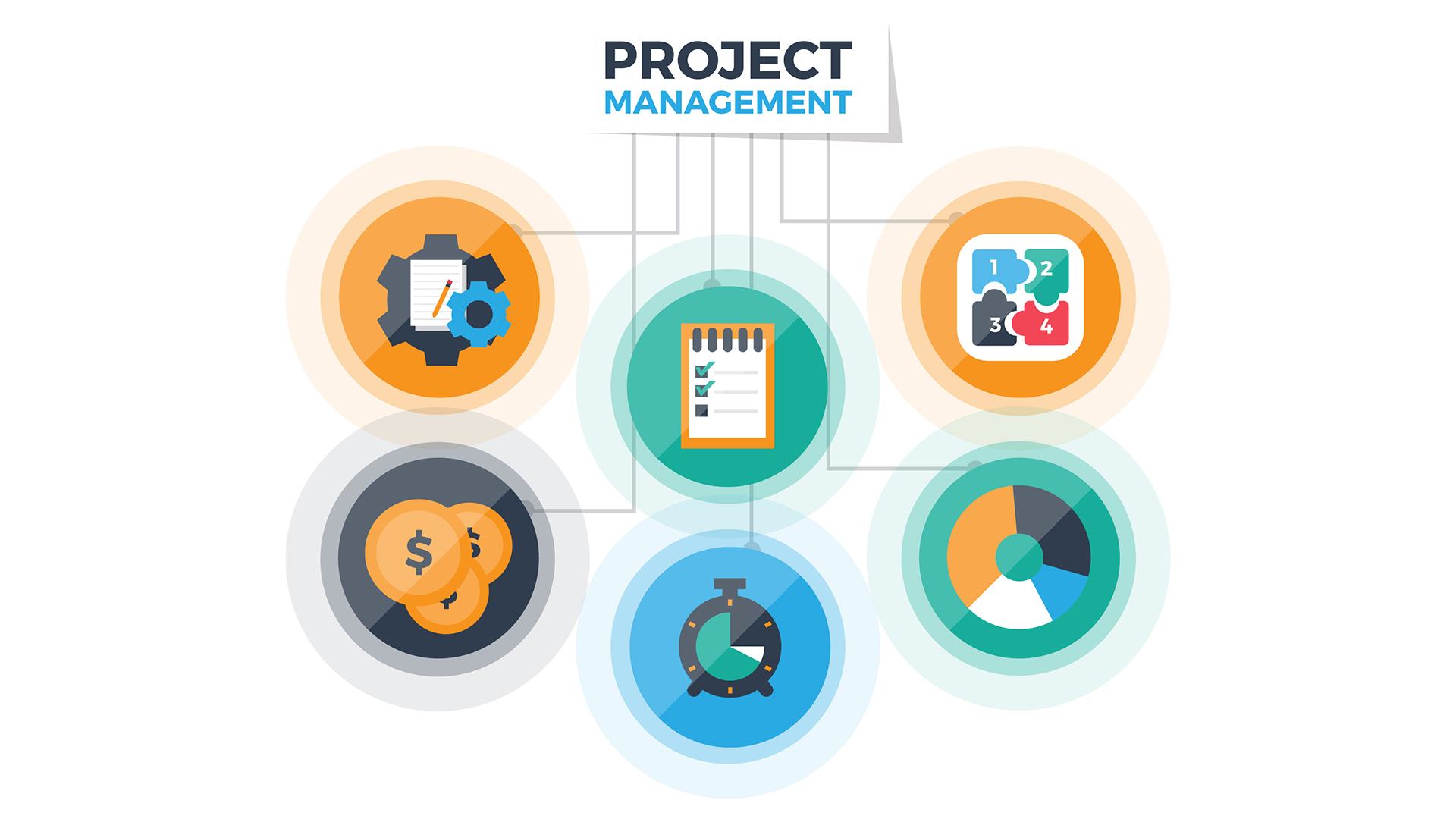
SMART Negotiation Skills for Project Managers
Course overview
Practically every profession requires the ability to negotiate. Negotiation skills are very important in project management, where they are needed to work with stakeholders, bargain for resources, plan to finalize a project’s budget, define the project’s scope, etc.
To guarantee proper and profitable project outcomes, project managers must be able to successfully bargain for the best resources, money, etc. Project managers must be able to concentrate on all facets of their job since they play the roles of leaders, negotiators, delegators, and mediators at the same time.
The majority of project managers have either been made aware of or are well aware of some best practices for developing effective negotiation skills. These practices include being the first to anchor expectations, being well-prepared for negotiations, grasping the full scope of all negotiation touchpoints prior to the start of a project, exercising optionality, and utilizing all forms of communication. Since bargaining is a key factor in determining whether a project succeeds or fails, all project managers should concentrate on honing their negotiating techniques.
Participants ability to negotiate effectively and meaningfully to obtain the greatest resources, money, and other crucial elements for project management will be enhanced by this Training Bee training course.
Additionally, the skills and information you acquire from this course will provide you the assurance and legitimacy needed to lead and carry out crucial negotiations for your company, showcasing your abilities and opening up new doors for development.
Introduction
Greetings and welcome to the project manager training on advanced negotiation skills! Success in the ever-changing field of project management is significantly influenced by one’s capacity for good negotiation. With the methods and approaches you’ll need to negotiate challenging project circumstances and produce desirable results; this course is designed to take your negotiation skills to the next level.
To give you a thorough and practical learning experience, this course incorporates interactive discussions, real-world case studies, theoretical concepts, and practical exercises. Our knowledgeable teachers are committed to provide you with the tools necessary to succeed in negotiations within the fast-paced field of project management.
We are The Training Bee, a global training and education firm providing services in many countries. We are specialized in capacity building and talent development solutions for individuals and organizations, with our highly customized programs and training sessions.
Prepare to become an expert negotiator and advance your project management abilities. Greetings and welcome to the project manager training on advanced negotiation skills!
Learning Objectives
Upon completing Advanced Negotiation Skills for Project Managers, participants will be able to:
- Thorough understanding of and expertise in negotiating for a variety of factors when project managing
- The assurance to take on important positions and duties involving delicate and challenging talks in order to meet a project’s criteria
- The ability to successfully negotiate on behalf of the organization, building credibility and opening doors for future expansion
- The expertise to evaluate plausible situations in order to create a negotiation plan that works for the organization
- The knowledge and viewpoint to choose the best influencing techniques and tactics for interacting with stakeholders
- The necessary aptitude and capacity to oversee projects successfully, according to the established and agreed-upon schedule, budget, and quality standards, so establishing credibility and encouraging additional professional development
Our Unique Training Methodology
This interactive course comprises the following training methods:
- Journaling – This consists of setting a timer and letting your thoughts flow, unedited and unscripted recording events, ideas, and thoughts over a while, related to the topic.
- Social learning – Information and expertise exchanged amongst peers via computer-based technologies and interactive conversations including Blogging, instant messaging, and forums for debate in groups.
- Project-based learning
- Mind mapping and brainstorming – A session will be carried out between participants to uncover unique ideas, thoughts, and opinions having a quality discussion.
- Interactive sessions – The course will use informative lectures to introduce key concepts and theories related to the topic.
- Presentations – Participants will be presented with multimedia tools such as videos and graphics to enhance learning. These will be delivered engagingly and interactively.
Training Medium
This Advanced Negotiation Skills for Project Managers training is designed in a way that it can be delivered face-to-face and virtually.
Course Duration
This training is versatile in its delivery. The training can be delivered as a full-fledged 40-hour training program or a 15- hours crash course covering 5 hours of content each day over 3 days
Pre-course Assessment
Before you enroll in this course all we wanted to know is your exact mindset and your way of thinking.
For that, we have designed this questionnaire attached below.
- Give an explanation of bargaining in terms of project management.
- List and briefly describe the essential elements of a fruitful negotiation.
- Give a brief account of a negotiation you were involved in while working as a project manager.
- What challenges did you face and how did you overcome them?
- Describe the importance of negotiating skills for project managers.
- Give instances of project management scenarios where successful negotiating is crucial.
- Explain the stakeholder analysis procedure in the context of the negotiation.
- How could negotiation approach be affected by knowing the priorities and interests of stakeholders?
- Explain reservation point and BATNA (best alternative to a negotiated agreement).
- How can project managers use these ideas to improve the results of negotiations?
Course Modules
This Advanced Negotiation Skills for Project Managers covers the following topics for understanding the essentials of the Agile Workplace:
Module 1 – Strategies for Engaging in Negotiations
- Distributive (method of win-lose)
- Lose-lose methodology
- Give in
- Integrated (win-win strategy)
Module 2 – Fundamental Styles of Negotiation
- Aggressively competing
- Cooperatively collaborating
- Staying away from
- Giving in
- Giving in or accommodating
Module 3 – Phases of Discussion
- Preparation
- Opening
- Bargaining
- Closing
Module 4 – Components of Bargaining
- Interests
- Alternatives
- Relationships
- Options
- Legitimacy
- Communication
Module 5 – WATNA and BATNA
- The term BATNA (best alternative to a negotiated agreement) is defined and explained.
- WATNA (best alternative to a negotiated agreement) definition and explanation
- The significance of both
- The difficulties in figuring out both
Module 6 – Negotiation Ethics
- Factors that influence
- Those who encourage unethical behavior
- Methods for approaching ethical reasoning
Module 7 – Negotiation Body Language
- The Face
- Cues
- Gestures
Module 8 – Various Communication and Negotiation Approaches in Different Nations
- Direct as opposed to indirect
- Detailed versus brief
- Personal versus contextual
- Comparing affective and instrumental
Module 9 – The Secret to Stakeholder Negotiations That Work
- Recognize your stakeholders
- Utilize your eyesight as a tool.
- Pay attention to alignment
- Explain your stance.
- Pose open-ended inquiries.
Post-course Assessment
Participants need to complete an assessment post-course completion so our mentors will get to know their understanding of the course. A mentor will also have interrogative conversations with participants and provide valuable feedback.
- In order to improve the results of negotiations, how did you determine and rank the interests of stakeholders?
- Think back to a previous negotiation situation and explain how you used the reservation point and BATNA ideas to improve your negotiating position.
- What role did have a clear BATNA play in the outcome of your negotiation?
- Talk about a negotiation where the cultural differences were a major factor.
- How did you modify your negotiating strategy to take cultural differences into account and establish rapport?
- Share a negotiating experience where a successful resolution required a thorough awareness of and management of power dynamics.
- What tactics did you use to successfully negotiate power disparities?
- Describe a negotiation in which your approach was clearly the result of careful planning.
- What effects did the planning stage have on the course and outcome of the negotiations?
Lessons Learned
Analysis of Strategic Stakeholders: Stakeholder analysis is a strategic process that is ongoing and has a substantial impact on negotiation results. It is not just a preliminary phase. Project managers have an ongoing need to evaluate and adjust to the interests of stakeholders.
Mastery of Power Dynamics: Comprehending and handling power relationships is a sophisticated ability in bargaining. In order to gain influence, project managers should identify their sources of power and use them wisely.
Negotiation with Cultural Intelligence: Cultural differences in negotiations can be a strength or a weakness. Cultural intelligence is a necessary skill for project managers to develop good cross-cultural interactions and modify their approach.
Making the Most of BATNA: A clear and concise BATNA is an effective instrument that increases bargaining power. Project managers who want to negotiate from a position of power should take the time to establish and comprehend their BATNA.
Ethical Approaches to Negotiation: In project management negotiations, ethical behavior is non-negotiable. In order to foster trust and uphold moral principles, project managers must place a high priority on openness, equity, and honesty.
Planning for Strategic Negotiations: Careful preparation is essential for a successful negotiation. Project managers should take the effort to comprehend the negotiation environment, specify goals, and create winning tactics.







